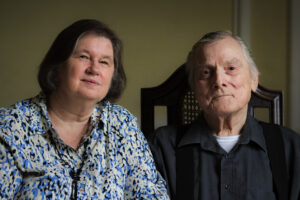Despite living in contemporary times, experts from the University of Michigan have found our body clocks are still wild at heart.
The times we live in now are more evolved than ever. The consent introduction of new technologies is just one example. However, new research from the University of Michigan shows that there is one part of human beings that remains deep rooted in nature, and this is our body clocks.
Published just this morning, the research shows our circadian rhythms (body clocks) track the seasonal changes in daylight which affects how we adjust to changes in our daily schedules as the year goes on.
To conduct the research, experts analysed sleep data from thousands of people who wear health devices to tack their sleep, such as Fitbits. Participants involved in the study were all medical residents completing a one-year internship who had enrolled in the Intern Health Study, funded by the National Institutes of Health.
‘Humans really are seasonal, even though we might not want to admit that in our modern context,’ Ruby Kim, co-author of the study, said. ‘Day length, the amount of sunlight we get, it really influences our physiology. The study shows that our biologically hardwired seasonal timing affects how we adjust to changes in our daily schedules.’
According to the researchers, these findings could change the way we view seasonal affective disorder and offer new coping methods.
Seasonal affective disorder is a type of depression that is prompted by changes in seasons. The condition is otherwise known as ‘winter depression’, however some people can experience it in the summer months.
‘This work shows a lot of promise for future findings,’ Kim added ‘This may have deeper implications for mental health issues, like mood and anxiety, but also metabolic and cardiovascular conditions as well.’
One particular area of the research the team are keen to expand on is the fact that humans have not one, but two body clocks. Daniel Forger, co-author of the research, said: ‘A lot of people tend to think of their circadian rhythms as a single clock. What we’re showing is that there’s not really one clock, but two. One is trying to track dawn, and the other is trying to track dusk, and they’re talking to each other.’
While interesting, the team notes that looking into this factor in more detail requires a lot more time and effort and this research, which can be accessed in full here, is still in the early stages. However, over time, who knows what discoveries will be made.
Photo by Annie Spratt via UnSplash.
In related news:


















Leave a Reply